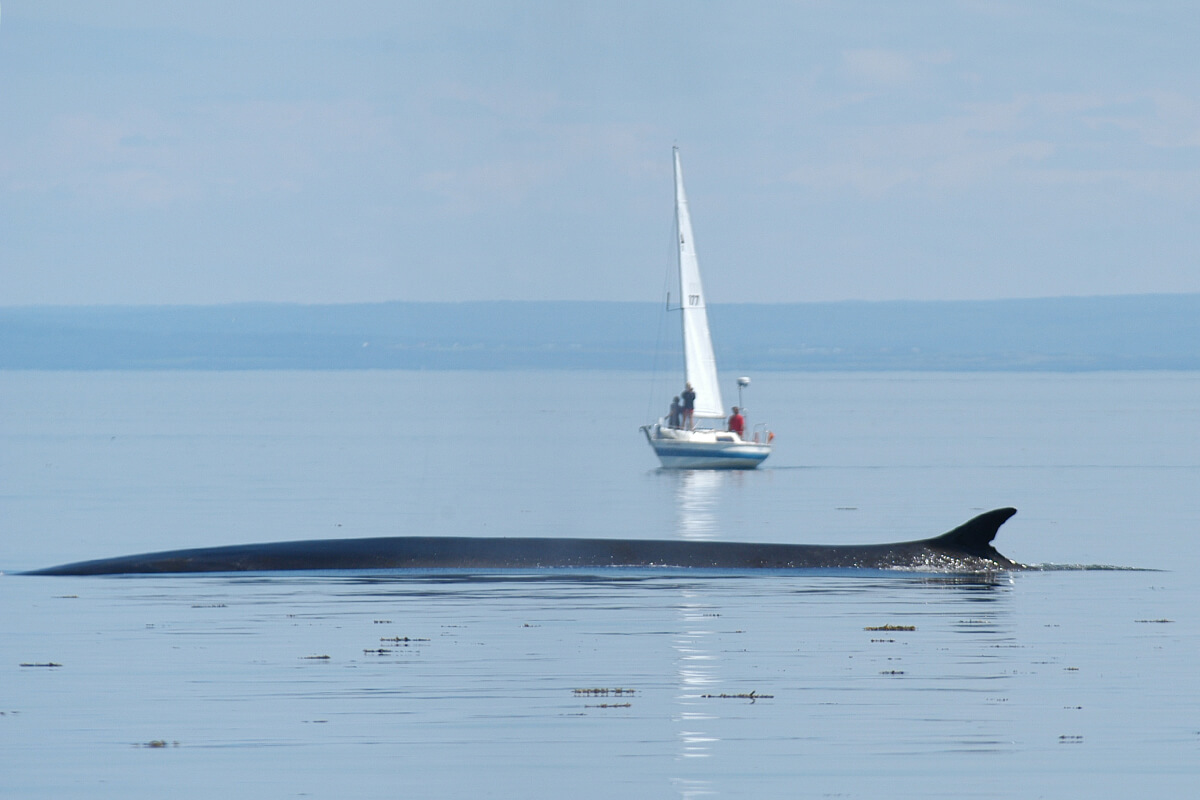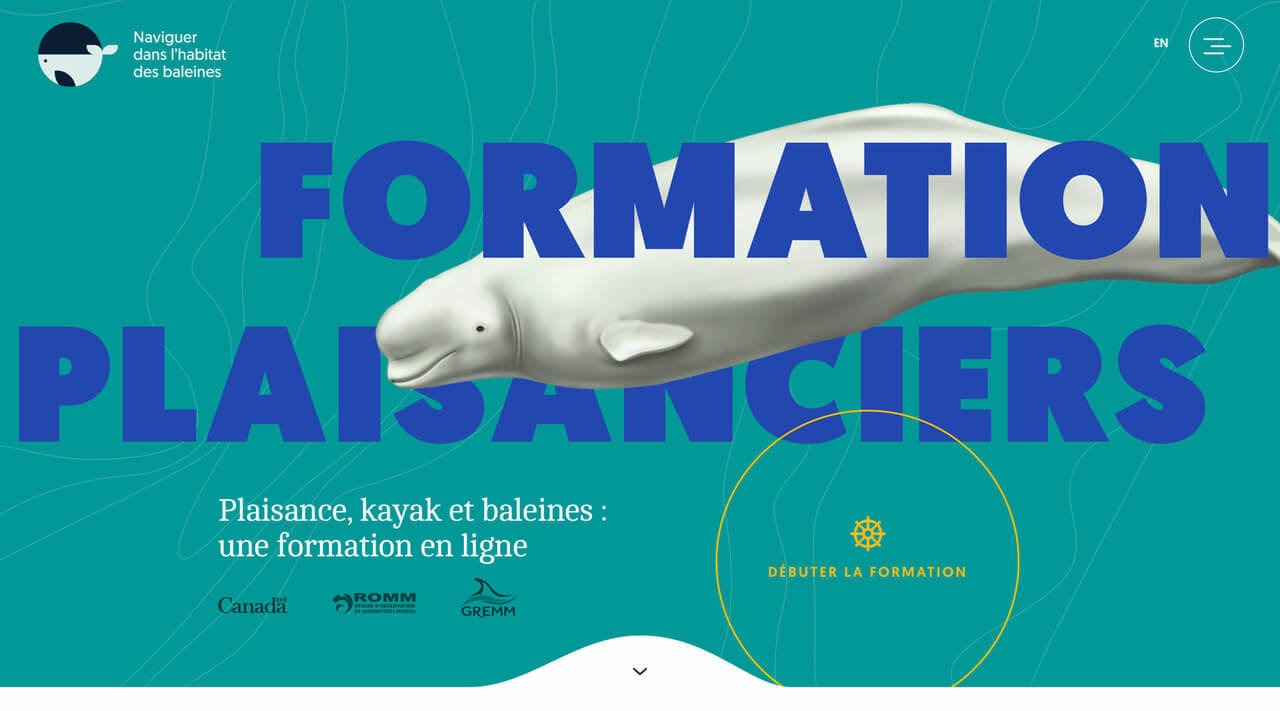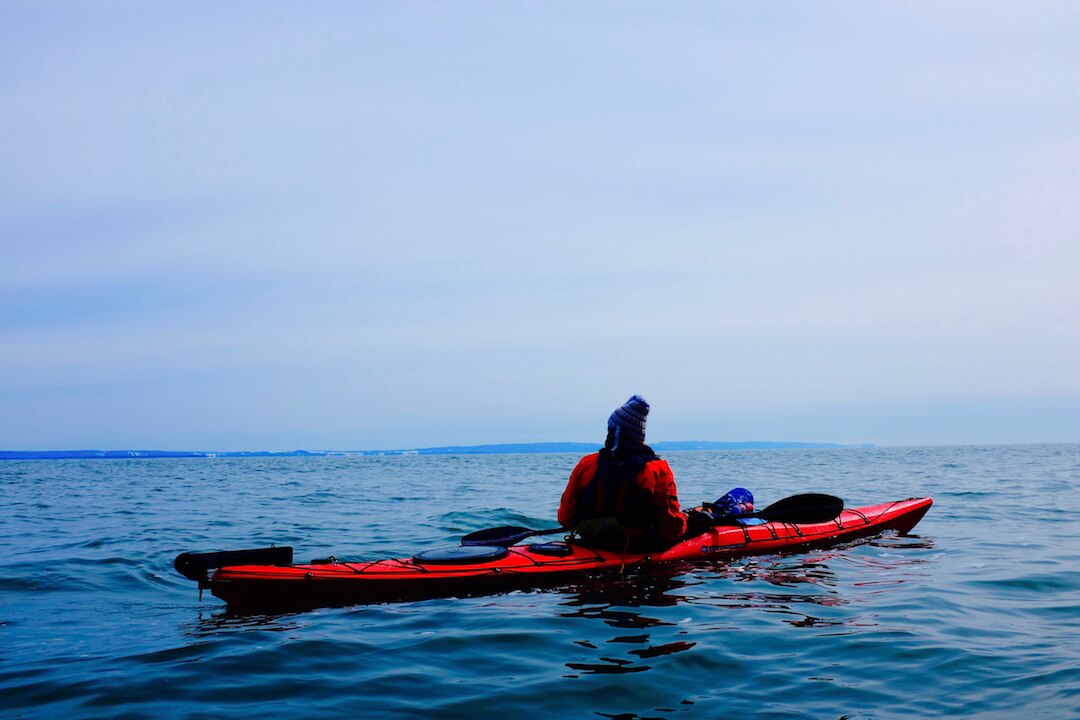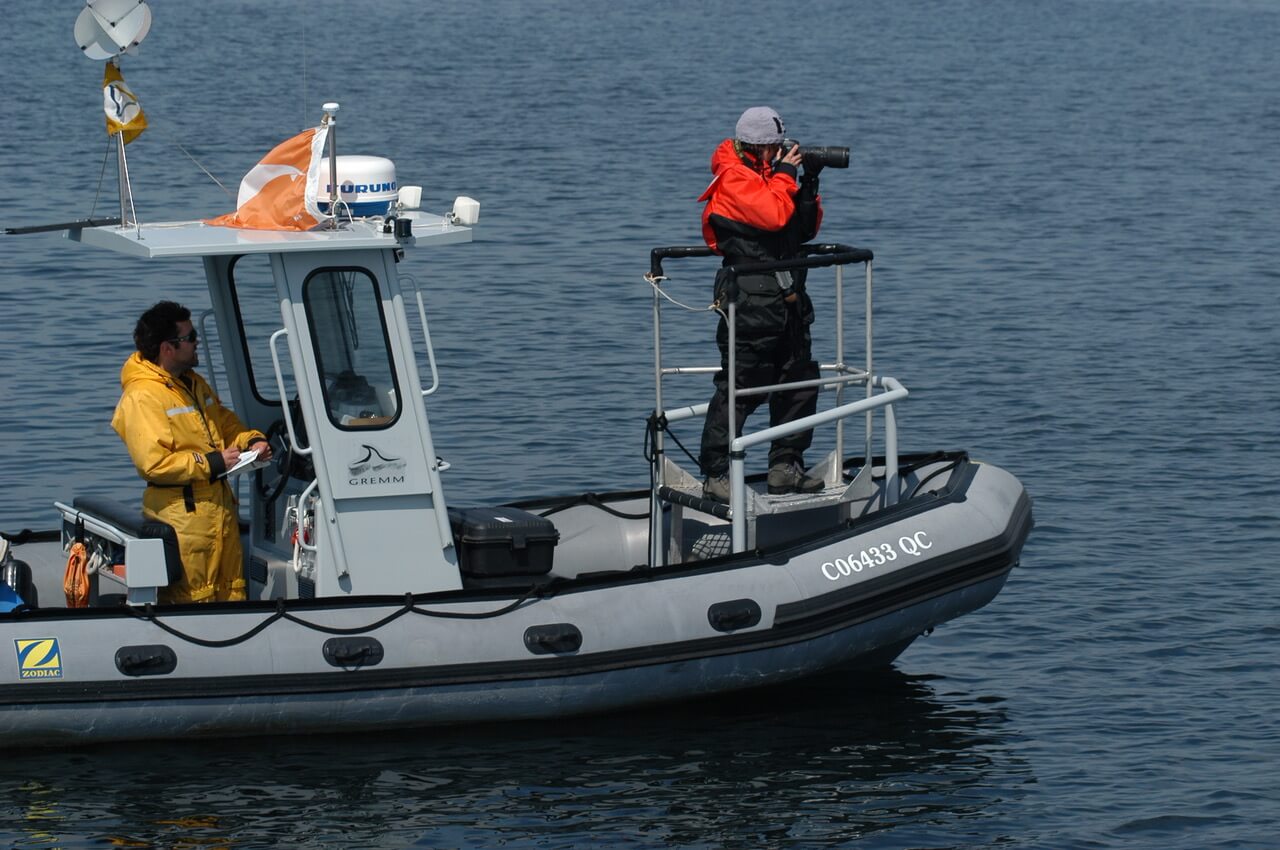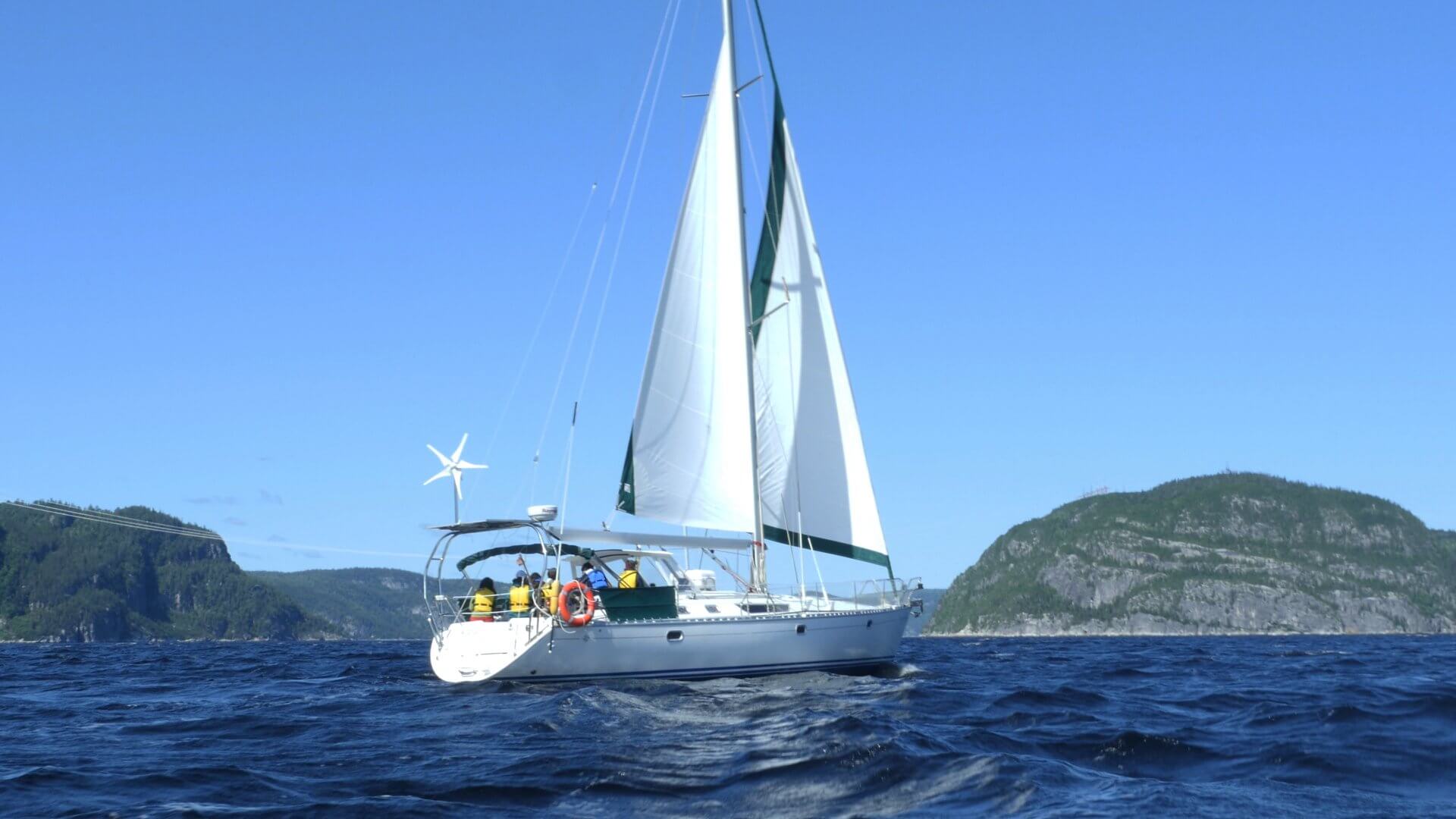Are you an avid kayaker, sailboater or motorboat enthusiast, and do you frequent the St. Lawrence or the Saguenay? The return of the sun and milder weather is synonymous with the arrival of whales! Navigating in their presence can bring lots of excitement, but also challenges. A training course has just been posted online to help you share the waves with cetaceans while complying with all applicable regulations.
Offered in French and in English, the course “Navigating Whale Habitat” is free of charge and can be completed on your mobile, tablet or computer. In 30 to 45 minutes, it will help you learn what you need to know to coexist with these giants of the sea as well as to gain a better grasp of the two regulations in force in this region.
Because yes, when you navigate in summer in the Estuary or the Gulf of St. Lawrence, or even in the Saguenay, you are in a critical area for many species of whales. Some, like rorquals, come in search of a rich and abundant food supply (in French) essential for their survival, while others, like the beluga, are in the midst of giving birth and raising their young. In this context, navigating their living space without causing them harm and while adhering to the regulations in force can be quite a challenge.
To help you do this, the Group for Research and Education on Marine Mammals (GREMM) and the Marine Mammal Observation Network (MMON), in partnership with Parks Canada and Fisheries and Oceans Canada, have therefore designed this simple and fun training course, which requires nothing more than an Internet connection. Until we have the opportunity to take to the sea again, why not take advantage of this period to brush up on your knowledge online?
To begin, you first choose the watercraft you most often operate: kayak, sailboat or motorboat. Through four modules, you will first discover the cetacean species present in the St. Lawrence, followed by the possible impacts that your activity can have on them. Next is an explanation of the regulations in force and scenarios to learn how to properly apply them. Lastly, a quiz allows you to assess your knowledge.
To validate the training, which remains voluntary, a certificate is emailed to you once you have passed the final evaluation. Afterwards, you can also continue in the “bonus” section to learn even more about whales, their incredible adaptations to the marine environment and their jaw-dropping behaviours. A better understanding of whale behaviour allows observers to watch them in a more respectful manner.
“The protection of whales, especially vulnerable populations such as the St. Lawrence beluga, is a matter of concern for anybody who uses the St. Lawrence,” points out Robert Michaud, GREMM’s scientific director. With this training, we aim to raise boaters’ and kayakers’ awareness of whales and educate them with regard to the potential impact they can have on these animals.”
OK, now it’s your turn to visit navigationbaleines.ca!


